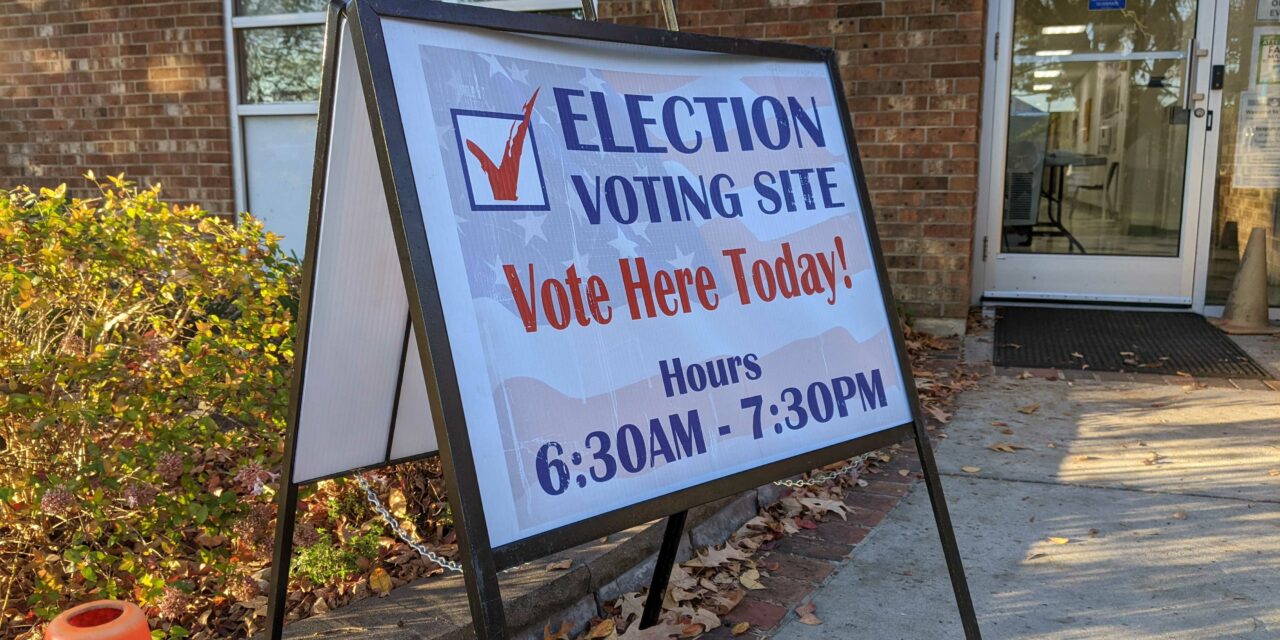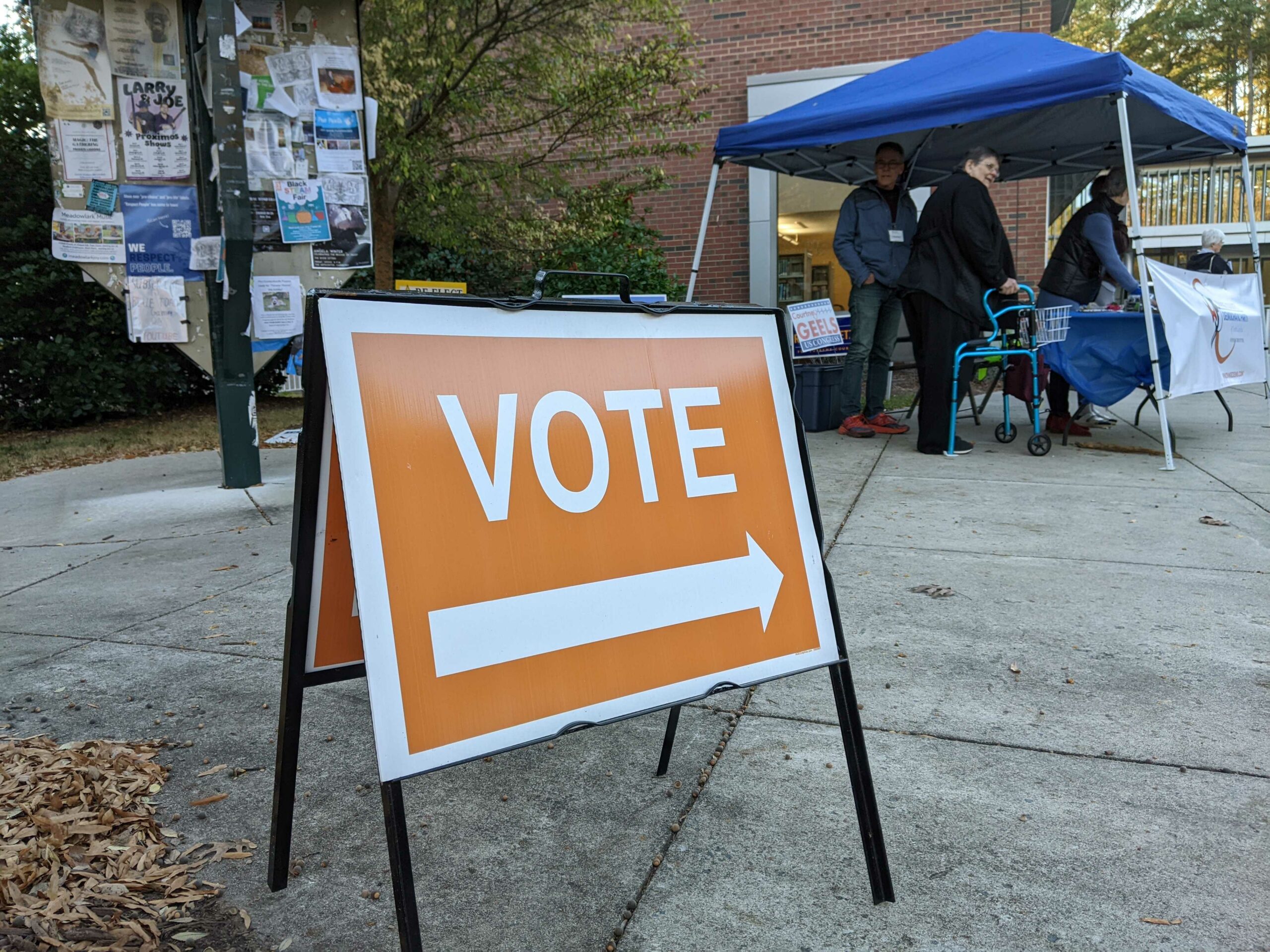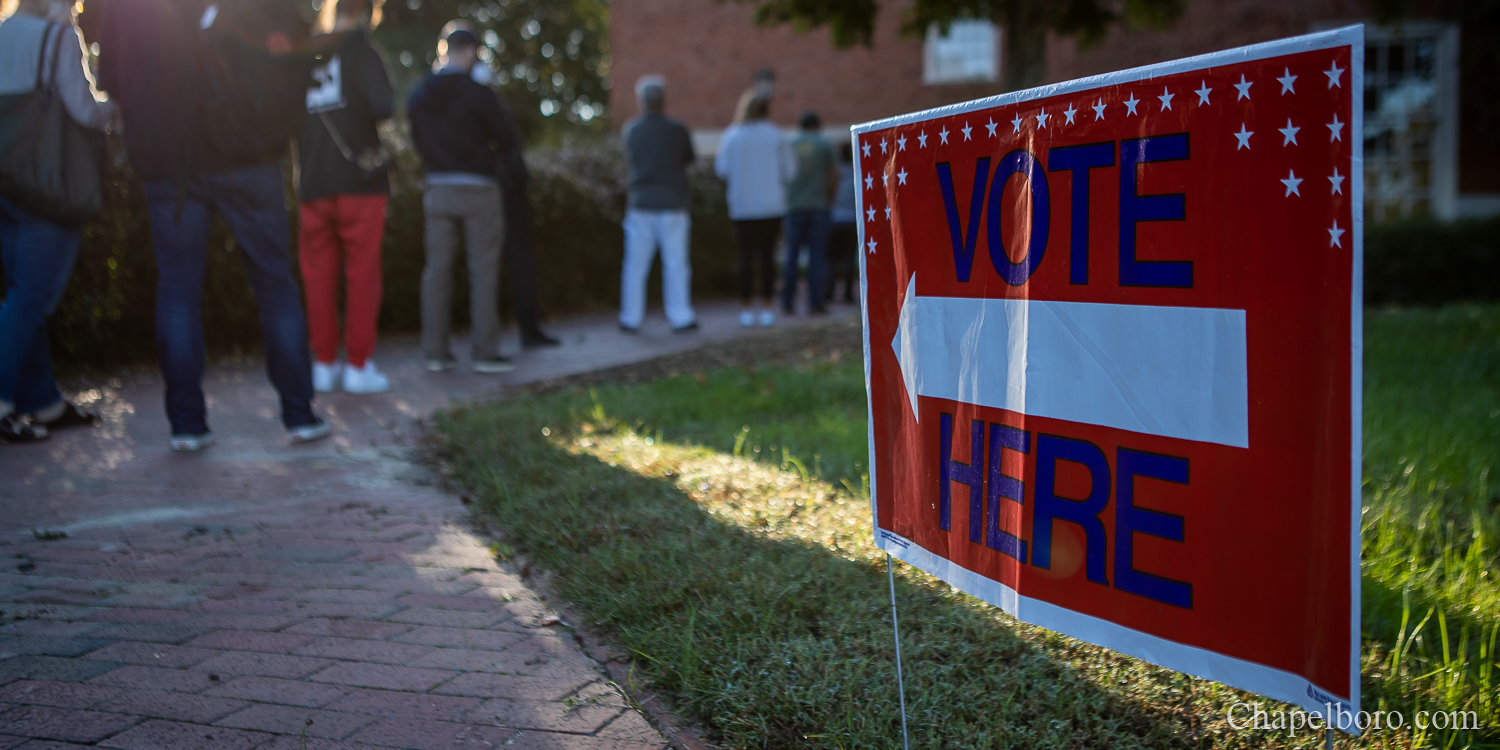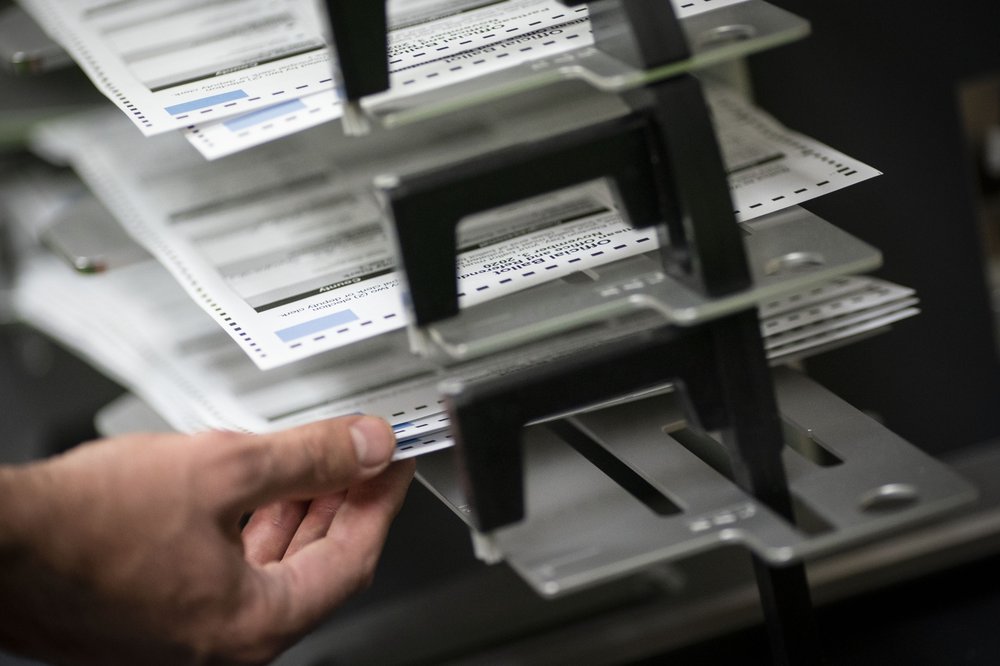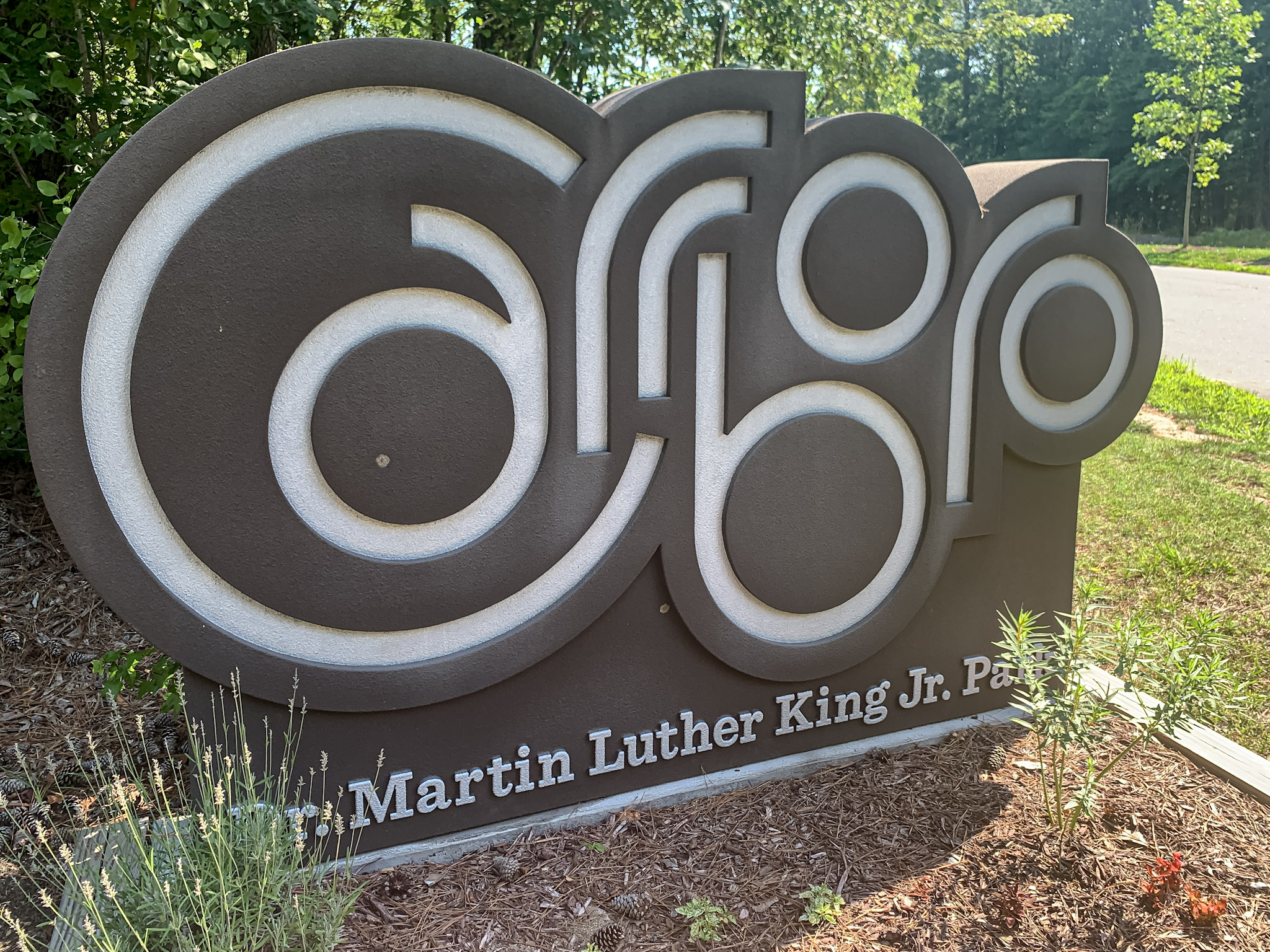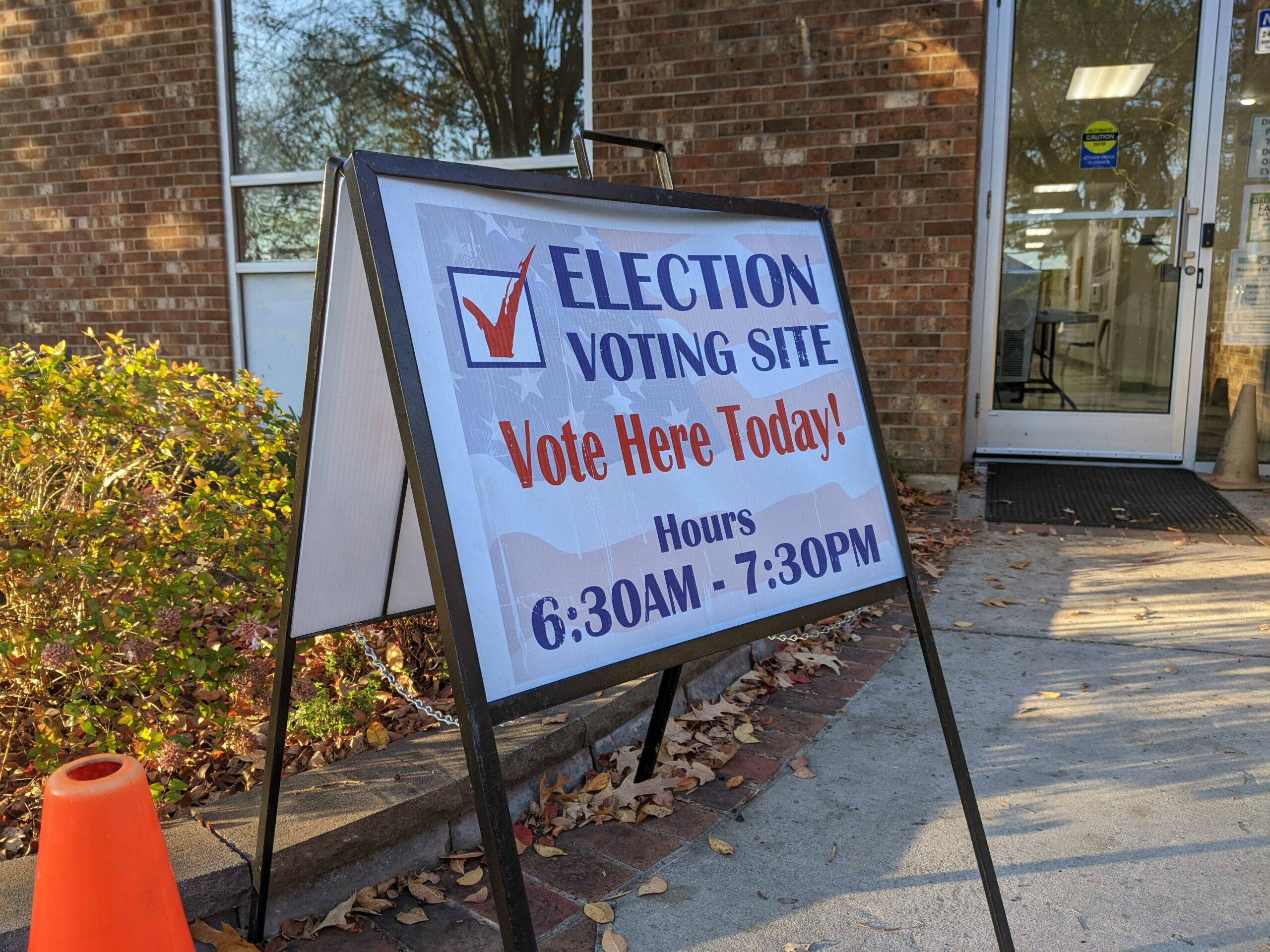The filing period is over and the ballot is set for the 2023 election in Orange County — and perhaps the most interesting race will be for Chapel Hill Town Council, where ten candidates are running for four open seats.
In recent years, Chapel Hill politics have been dominated by two organizations: the more pro-growth/pro-development NEXT Chapel Hill-Carrboro, and CHALT, the Chapel Hill Alliance for a Livable Town, which has opposed most big development proposals. This year, both groups may be able to endorse competing slates of four candidates — and it’s possible that neither slate will include moderate Amy Ryan, who’s the one incumbent running for reelection.
But while the Town Council battle is interesting, it won’t be the only crowded race on your November ballot – or even the most crowded race. That title falls to the race for Chapel Hill-Carrboro City School Board, where an astonishing nineteen candidates filed to run for four open seats – many of them inspired by unconfirmed rumors that the right-wing group Moms for Liberty was planning to run their own candidate slate. Progressive observers were excited by the strong response to those rumors, but election experts say they’re worried the crowded race may divide progressive voters — and actually make a Moms For Liberty sweep more likely, not less.
What’s the state of the race heading into campaign season? 97.9 The Hill’s Aaron Keck spoke with Public Policy Polling director Tom Jensen, who’s also a Chapel Hill resident.
Click here to listen to their conversation.
Aaron Keck: Let’s start with the Chapel Hill Town Council race: where do you see it shaking out?
Tom Jensen: I don’t know which side’s going to have more energy or momentum this year, but I’ve now been in Chapel Hill for 20 years and this is the first Town Council election that lined up this cleanly between two opposing factions.
CHALT really came on the scene in 2015 and had a lot of success in both 2015 and 2017. NEXT got more involved in 2019, and I’d say the 2019 election was a pretty mixed bag. And then 2021 was a very strong election for NEXT, a pretty poor election for CHALT. That’s the background over the last four elections. But in each of those elections, you had a little bit of (overlap) between who each side supported. You never had one where each side had a full slate of candidates.
And then the other thing that’s going to be fascinating to watch is what happens to the one incumbent running for reelection, Amy Ryan. At this point, it seems like she’s not likely to be part of either of the parties’ slates. So it’ll be interesting to see if she can build support as somebody who’s sort of truly an independent candidate.
Keck: Do you expect or assume that both NEXT and CHALT will end up endorsing four candidates each? You do definitely see a pretty clear split: on CHALT’s side, David Adams, Breckany Eckhart, Elizabeth Sharp, and Renuka Soll; on NEXT’s side, Melissa McCullough, Jon Mitchell, Theodore Nollert, and Erik Valera. But that doesn’t necessarily mean that CHALT and NEXT will definitely endorse all four. In previous elections, they’ve explicitly not endorsed four candidates, because they didn’t think the candidates were qualified enough, even if they leaned towards their side on development.
Jensen: I don’t have any inside information, but I’m relatively confident that this is not a situation where everybody filed and then NEXT and CHALT are going to decide who they support. I think both those groups were pretty actively involved in recruiting the candidates who are running. (So) I would expect that they’ll each endorse a full slate of four this year. One thing I thought was particularly telling was what happened in the Chapel Hill Town Council race last week: one of the candidates, Michael Beauregard, dropped out, (and) basically said, “there’s only room for four candidates on my side,” and went ahead and endorsed the four (NEXT-leaning) candidates.
Going back to the fascinating Amy Ryan question: I could see her finishing first in this field, and I could see her finishing ninth. Sometimes in Chapel Hill elections, if there is a more middle-of-the-road candidate, (they) end up being everybody’s fourth choice (and) they end up finishing first, even though they were everybody’s fourth choice, because they can get support from both camps. So that could happen for Amy Ryan. (But) then there’s also a path where she just gets shut out, because maybe she’s nobody’s least favorite, but she’s not in enough people’s top four either, and she just ends up getting left out in the wilderness. So it’ll be really interesting to see.
There’s just been a significant change in how Chapel Hill politics have worked over the last decade. I think CHALT ushered it in, and then NEXT has sort of risen up to meet the occasion, and we now have – obviously there’s no robust two-party system in Orange County between Democrats and Republicans, so this local-level two-party system in Chapel Hill is the most robust two-party competition we have in Orange County.
Keck: Amy Ryan does enter the race as the one incumbent, and that’ll give her at least a little bit of a name recognition advantage. How much do you think the incumbency advantage helps in local races?
Jensen: I think it doesn’t help that much, because people just don’t even know who’s on Town Council. And something that’s going to be interesting to see this fall is whether we have a really strong turnout because people are starting to get motivated for the presidential election. That can bleed over even to things like turning out for Town Council elections. And basically, the bigger the voter pool we have for Town Council, the less familiarity there is with the incumbents. We saw Ed Harrison lose his seat after 16 years in 2017, partially because way more people voted in 2017 than had voted in previous municipal elections – the energy that was created by Trump – and even though (Harrison) had been in for four terms, these (new voters) didn’t know who he was because they hadn’t voted in his previous elections.
Keck: Let’s turn to the other crowded local race, the race for Chapel Hill-Carrboro School Board. There are 19 candidates on the ballot – though two of them have effectively dropped out, so 17 candidates are actively campaigning. (There are) four open seats and three incumbents running for reelection, but as you mentioned, name recognition’s going to be low.
Jensen: It’s an interesting situation. The reason there’s so many people running was to stop candidates associated with Moms for Liberty from getting elected. But ending up with this many people running is actually a recipe for making the Moms for Liberty people more competitive than they should be, in a community like Chapel Hill and Carrboro.
If there were four Moms for Liberty candidates and six standard progressive candidates, you wouldn’t have to worry much about the Moms for Liberty candidates winning. But with this many people, it’s going to be hard for voters to make up their mind. So I think it’s healthy for some people to be dropping out – and it would probably be healthy for more people to drop out, if people really want to make sure that right-wing school board candidates don’t get into office. Because the way that would happen is (if) the progressive vote gets split too many different ways, especially with the low-profile nature of school board elections. There may not be that many conservative voters in Chapel Hill and Carrboro, but if they’re all voting the same way while the progressives are voting all over the place, (that’s a) potential recipe for disaster.
And even though it would be an unusual act, I think if there do continue to be this many candidates in the race, the (Orange County) Democratic Party should maybe even think about endorsing a slate of candidates for the school board, to lessen the chances that right-wing candidates get any traction.
Keck: We talked about that dynamic with Donald Trump and the Republican primary, right? There’s still only a minority of Republican voters who support Trump (as their top choice), but everyone else is split among so many different other candidates, (and) Trump ends up finishing first.
Jensen: Absolutely. And I think that’s a particularly acute potential problem in these school board races, because none of the candidates are really going to be able to raise any money. I think it’s a good bet that the Chapel Hill election, with an open, competitive mayoral seat, is going to suck up most of the oxygen in the room. And the way that Republicans win stuff like this is if Democrats are too fragmented and not paying enough attention. So I just think that’s something local progressive leaders need to keep their eyes out for in the weeks ahead.
Chapelboro.com does not charge subscription fees, and you can directly support our efforts in local journalism here. Want more of what you see on Chapelboro? Let us bring free local news and community information to you by signing up for our biweekly newsletter.

